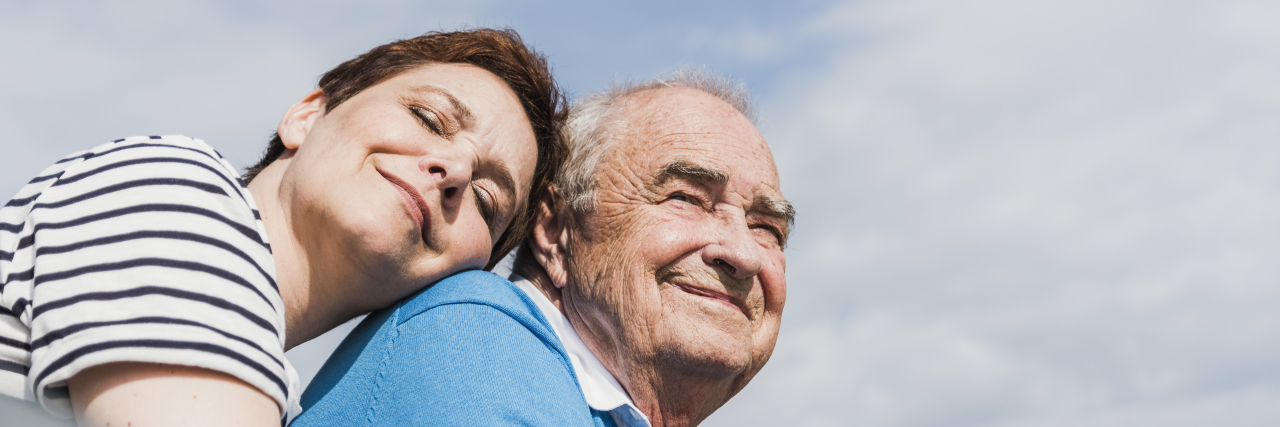“As an adult now, I feel like I can share this with you now.” I stared at the text and read it again. Had my child really just said this to me? She was only 19 – what do you mean “as an adult”? But she was correct, she was an adult, and her relationship with me and my chronic illnesses was changing. This was definitely going to be an interesting ride from here on out!
As a person with chronic illness, my children have always had to have different considerations than others, and bore different concerns than other children did. They got used to hearing phrases like, “In a minute I’m hurting right now,” or “I’m a little tired, maybe later.” They knew special considerations were sometimes needed. Over the years, I have become used to my wife giving me guidance and sometimes direction, but now my kids would be too? I am not sure I am ready for this.
The first instance of this happened earlier this year on the heels of my fight with COVID. Being in the hospital for a week and being so sick for more than a month really shook my children up. Seeing me so weak, and having such difficulty recovering was something they had not experienced as adults. It was also the first time they really had to become caregivers and do just about everything for me. For them, it was a bit of a reality check for the life I led and might lead as I grew older.
At the time, my daughter was planning to go away in the fall for college, but shortly after this, she began talking about living at home and finishing school. Being “out of the house” and hours away from home suddenly did not seem as important as it had just months before. We also noticed a change in the time she spent with us, many times coming into our bedroom in the evenings with her brothers, just spending time visiting and talking with us. In many ways, our bond had never been stronger.
What came next, for me, was the hardest change of all for me to accept. Up until then, I had worked to shield my children from some of the worst aspects of my multiple chronic illnesses. While they knew that I struggled, I did not discuss many things about my chronic health issues, and certainly never consulted with them in regards to my treatment options or the course the disease was taking. So, when my doctors began speaking to me about the COVID vaccine, I had it worked out – the “One and Done” shot was the way I was going to go. The next day, I got a text from my daughter that said I should do another shot, and she included links to articles and research for me to do, ending the text with “Now that I am an adult…”.
For me, it was a bit jolting. Not only was my child taking an interest in my health and wellbeing, but now she was researching and giving me advice. She was becoming an active participant in my care, and as she did, I was now on the receiving end of what I had spent my life giving to her.
In all of these instances and reactions, I realized something very important about my children, myself, and our relationship: it was changing and this was their way of coping with my chronic health struggle. The uncertainty that my health brings to my life brings that same uncertainty to their life. Just like me, they are looking for ways to impact and control the journey I am on.
Choosing to stay close to home, taking on more of a caregiver role, and researching and giving me direction all said the same thing – they loved me, they worried about me, and they wanted to care for me as I had cared for them. They were willing to decide things and change their plans to ensure I was cared for and that the best decisions possible were made.
It was the first time that the parent/child relationship was “flipped” on me, and instead of being the caregiver, I became the one being cared for. As a parent, that is a hard pill to swallow, but as a parent with chronic illness, who has fought so hard to be independent and get done what needed to get done, letting her have input was hard, and it has been difficult not to fight against. “As an adult,” she cares for me and shows that care by taking new steps to be involved in the direction my care takes.
I understand more now why I have seen so many others fight against health decisions their children were making for them. Some days it is frustrating for me, but I am realizing being forced to have this type of input, is also very hard on them. I wish I could say I always respond with grace and compliance, but let’s be real, anyone who knows me knows I do not. But hopefully, little by little, I am learning and remembering that this care, concern, and involvement really are coming from a place of love.
In some ways, our roles have reversed, and they will have to do some “parenting” with me and help guide me on this path of chronic illness, just as I guided them when they were young. Hopefully, though, I won’t be as difficult as they were (then again, it is me we are talking about), and I will remember that everything they are doing, is out of a heart of love for me. If I remember that, then it will be easier to accept the advice I get because “Now they are adults.”
Getty image by WestEnd61.

